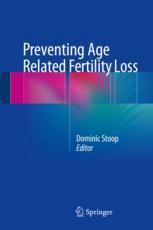

Most ebook files are in PDF format, so you can easily read them using various software such as Foxit Reader or directly on the Google Chrome browser.
Some ebook files are released by publishers in other formats such as .awz, .mobi, .epub, .fb2, etc. You may need to install specific software to read these formats on mobile/PC, such as Calibre.
Please read the tutorial at this link. https://ebooknice.com/page/post?id=faq
We offer FREE conversion to the popular formats you request; however, this may take some time. Therefore, right after payment, please email us, and we will try to provide the service as quickly as possible.
For some exceptional file formats or broken links (if any), please refrain from opening any disputes. Instead, email us first, and we will try to assist within a maximum of 6 hours.
EbookNice Team

Status:
Available0.0
0 reviewsThis unique book provides expert advice on all the different aspects related to fertility preservation for age related infertility. Although, there is a lot of information available on the Internet and in books about fertility preservation for cancer treatment, little information is available for young women that are confronted with a ticking biological clock. While men have been able to cryopreserve sperm since the 1950s, women have only recently gained the opportunity to preserve their gametes through the egg vitrification technique. Therefore, many women confronted with a risk of imminent fertility loss, such as chemotherapy, are now freezing their oocytes instead of embryos. Successful oocyte cryopreservation offers them a reproductive autonomy independent of men. Moreover, it now enables single women to preserve their reproductive chances. The most important threat for female fertility is ovarian aging as it causes a progressive decline in the reproductive chances. The general trend to delay motherhood due to societal changes confronts many women and couples with a diminished fertility. This fertility problem can often not be cured by in vitro fertilization, which makes that an increasing number of women require oocyte donation as the treatment of last resort. In the last few years, fertility centres around the world have started to offer the opportunity cryopreserve oocytes to young, often highly educated, single women. This patient population is unique as compared to other patients in the fertility clinic as they perform a preventive treatment. They are neither confronted with infertility nor are they undergoing a treatment that might cause an imminent treat to their fertility.